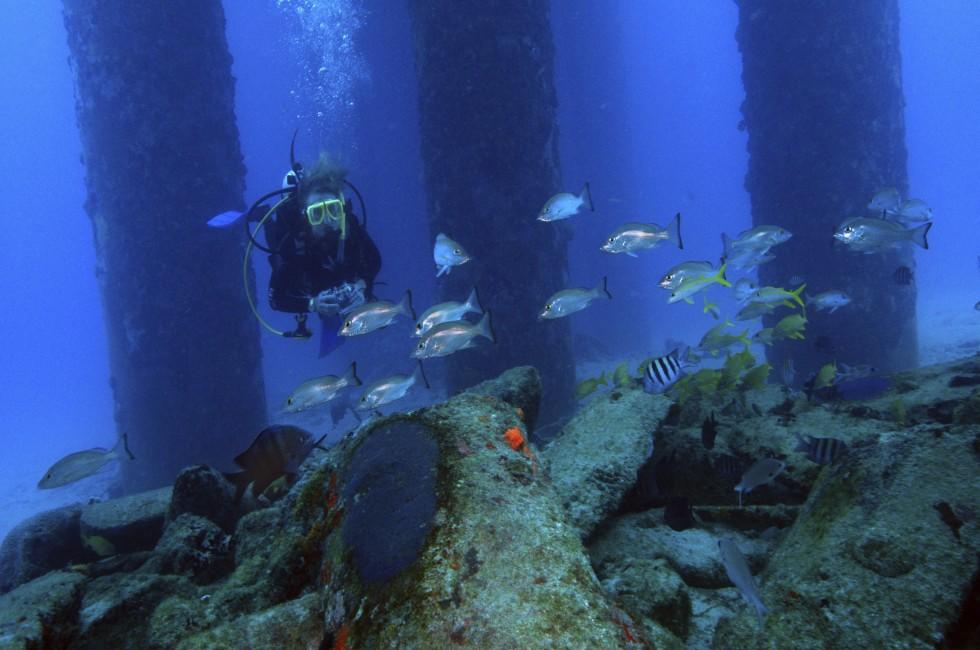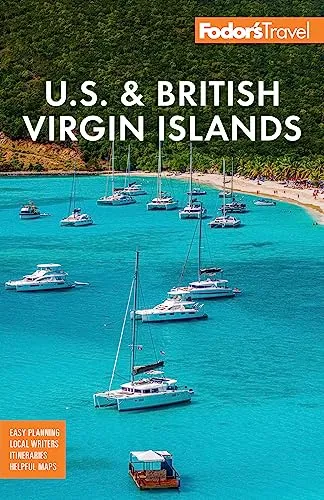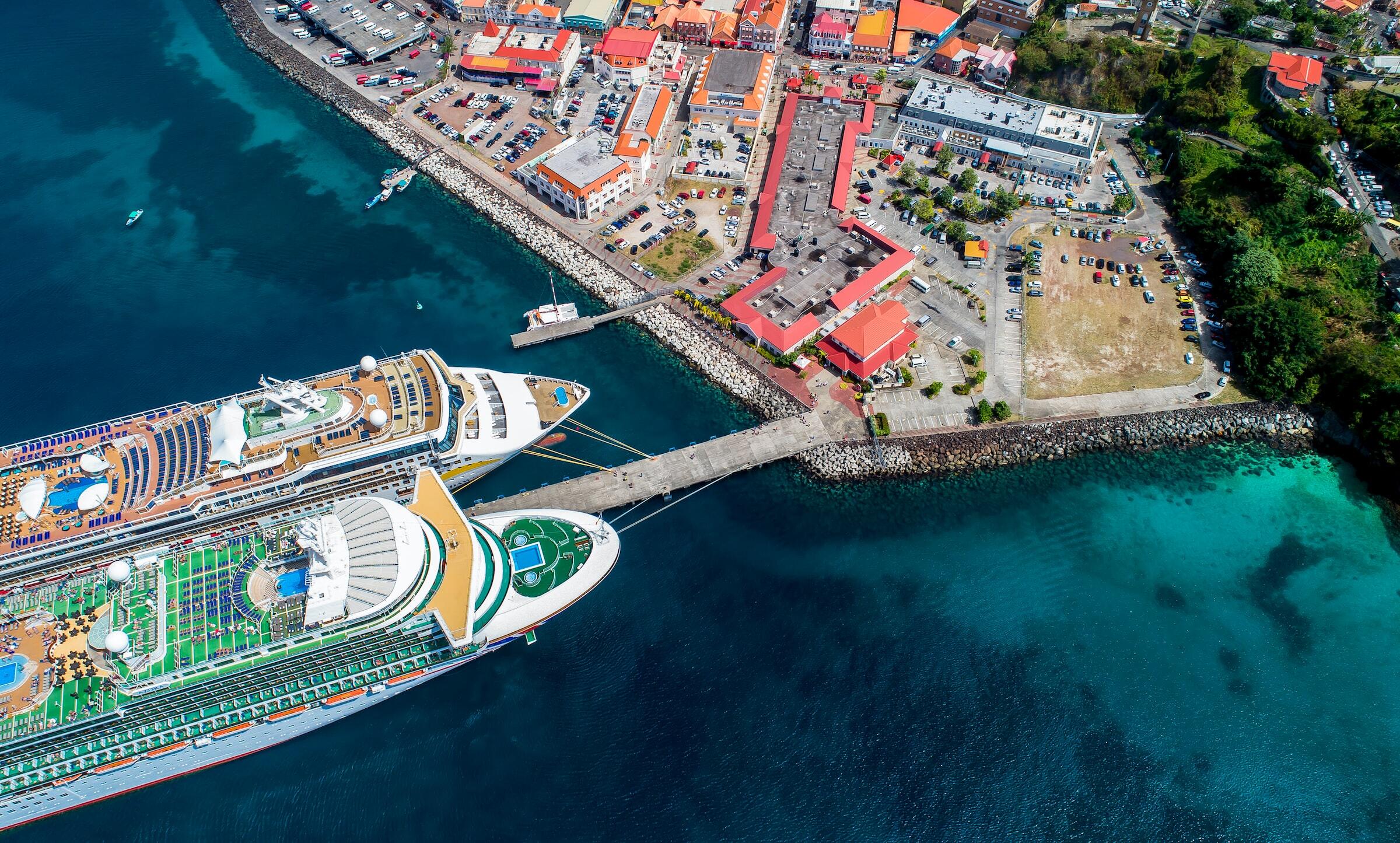St. Croix
St. Croix
The largest of the USVI, St. Croix is 40 miles (64 km) south of St. Thomas. Plantation ruins, reminiscent of the days when St. Croix was a great producer of sugar, dot the island. Its northwest is covered by a lush rain forest, its drier East End spotted with cacti. The restored Danish port of Christiansted and the more Victorian-looking Frederiksted are its main towns; Buck Island, off the island's northeast shore, attracts many day visitors.
Until 1917 Denmark owned St. Croix and her sister Virgin Islands, an aspect of the island's past that is reflected in street names in the main towns of Christiansted and Frederiksted, as well as the surnames of many island residents. Those early settlers from Denmark and other European nations left behind slews of 18th- and 19th-century plan...
Read MoreThe largest of the USVI, St. Croix is 40 miles (64 km) south of St. Thomas. Plantation ruins, reminiscent of the days when St. Croix was a great producer of sugar, dot the island. Its northwest is covered by a lush rain forest, its drier East End spotted with cacti. The restored Danish port of Christiansted and the more Victorian-looking Frederiksted are its main towns; Buck Island, off the island's northeast shore, attracts many day visitors.
Until 1917 Denmark owned St. Croix and her sister Virgin Islands, an aspect of the island's past that is reflected in street names in the main towns of Christiansted and Frederiksted, as well as the surnames of many island residents. Those early settlers from Denmark and other European nations left behind slews of 18th- and 19th-century plantation ruins, all of them worked by slaves brought over on ships from Africa, their descendants, and white indentured servants lured to St. Croix to pay off their debt to society. Some of these ruins—such as the Christiansted National Historic site, Whim Plantation, the ruins at St. George Village Botanical Garden, and the ruins at Estate Mount Washington and Judith's Fancy—are open for easy exploration. Others are on private land, but a drive around the island passes the ruins of 100 plantations here and there on St. Croix's 84 square miles (218 square km). Their windmills, greathouses, and factories are all that's left of the 224 plantations that once grew sugarcane, tobacco, and other agricultural products at the height of the island's plantation glory.
The downturn began in 1801, when the British occupied the island. The demise of the slave trade in 1803, another British occupation from 1807 to 1815, droughts, the development of the sugar-beet industry in Europe, political upheaval, and a depression sent the island on a downward economic spiral.
St. Croix never recovered from these blows. The freeing of all of the slaves in the Virgin Islands in 1848, followed by labor riots, fires, hurricanes, and an earthquake during the last half of the 19th century, brought what was left of the island's economy to its knees. The start of Prohibition in 1922 called a halt to the island's rum industry, further crippling the economy. The situation remained dire—so bad that President Herbert Hoover called the territory an "effective poorhouse" during a 1931 visit—until the rise of tourism in the late 1950s and 1960s. With tourism came economic improvements coupled with an influx of residents from other Caribbean islands and the mainland. For years Hovensa Oil Refinery was an economic stimulus, until it shuttered its doors in 2012. Currently, the economy is struggling and a number of businesses have closed.
Today suburban subdivisions fill the fields where sugarcane once waved in the tropical breeze. Condominium complexes line the beaches along the north coast outside Christiansted. Homes that are more elaborate dot the rolling hillsides. Modern strip malls and shopping centers sit along major roads, and it's as easy to find a McDonald's as it is Caribbean fare.
Although St. Croix sits definitely in the 21st century, with only a little effort you can easily step back into the island's past.
Recommended Fodor’s Video
Hotels
Things to Do
Things to Do
Find the perfect tours and activities in St. Croix.
Where to Eat
Where to Eat
Need to Know
Need to Know
Language
EnglishNearby Airports
STXElectrical Outlets
110v/60 cycle; plugs are U.S. standard two- and three-prongCurrency
U.S. dollarLanguage
EnglishElectrical Outlets
110v/60 cycle; plugs are U.S. standard two- and three-prongCurrency
U.S. dollarNearby Airports
STXNeighborhood Guides
Discover the best neighborhoods in St. Croix with curated recommendations from our editors.
essentials
transportation
resources
Local Weather
Neighborhood Guides
Discover the best neighborhoods in St. Croix with curated recommendations from our editors.
Local Weather
Neighborhood Guides
Discover the best neighborhoods in St. Croix with curated recommendations from our editors.
essentials
transportation
resources
Articles
Articles See All
Guidebooks
Guidebooks
Our worldwide travel correspondents bring you the best and most up-to-date coverage of over 7,500 global destinations.
Shop NowFodor's U.S. & British Virgin Islands
For over 80 years, Fodor's Travel has been a trusted resource offering expert travel...
Fodor's The Complete Guide to the National Parks of the USA: All 63 parks from Maine to American Samoa
Whether you want to hike through the jaw-dropping scenery of Acadia, see rare wildlife and...














